Do you agree that maintaining a strong online presence is important for your business?
However, achieving and maintaining optimal SEO performance requires ongoing assessment and refinement. This is where SEO audit tools come into play.
In this post, we’ll discuss the best SEO audit tools that’ll help you improve your search rankings. So, without any further ado, let’s get started.
1 What is an SEO Audit?
An SEO audit is a comprehensive evaluation of a website’s adherence to best practices for search engine optimization.
It involves analyzing various elements such as technical elements, on-page elements, and off-page factors to identify issues affecting search engine visibility and performance.
An effective SEO audit provides actionable insights that help optimize a website to meet current SEO standards and achieve higher rankings.
Importance of SEO Audits
SEO is a dynamic field, with search engines continually updating their algorithms to deliver the most relevant results to the audience.
What worked well for SEO a few months ago might not be as effective today. Regular SEO audits are essential to:
- Identify and fix technical issues that affect website performance.
- Optimize content to align with evolving search engine criteria.
- Enhance user experience, leading to increased engagement and lower bounce rates.
- Build and maintain a robust backlink profile.
- Stay ahead of competitors by adapting to the latest SEO trends and best practices.
Let us now discuss the best SEO audit tools, which will help you save time and effort by performing comprehensive scans and offering recommendations for optimization.
2.1 Google Search Console
Google Search Console is one of the best tools to help you optimize the website’s performance.
As a free service provided by Google, it offers a wealth of insights and functionalities that can significantly enhance a site’s search visibility.

The tool enables the monitoring and troubleshooting of various aspects of the site’s presence on Google Search.
It provides detailed reports on the website’s performance in search results, highlighting important data such as search queries that bring visitors to the site, the number of impressions and clicks these queries generate, and the site’s average position in search results.
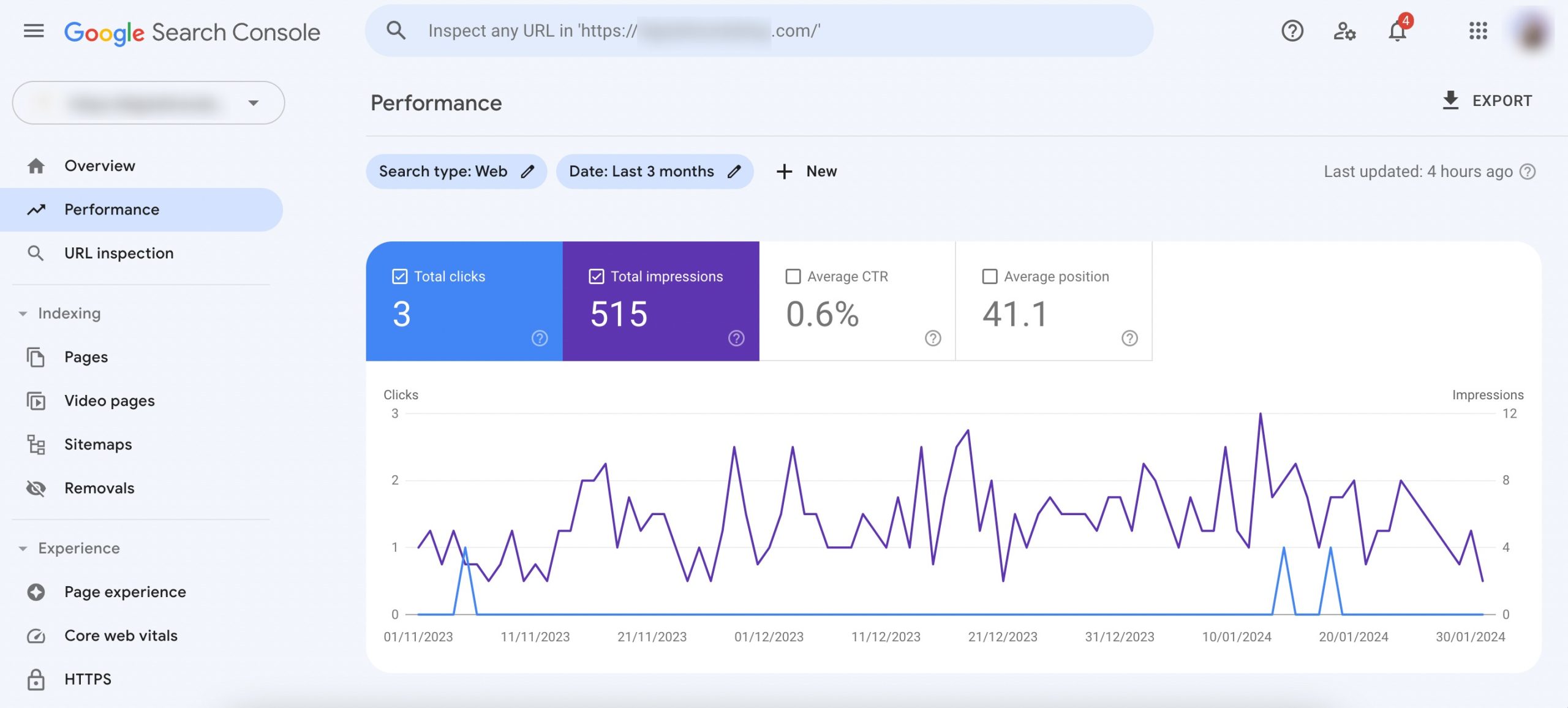
One of Google Search Console’s standout features is its ability to identify and fix technical issues that might affect a site’s SEO performance.
For instance, it alerts users to crawl errors, allowing them to see which pages were incorrectly indexed by Google’s crawler.
The tool also assists in monitoring and improving site speed, an important component of user experience and SEO.
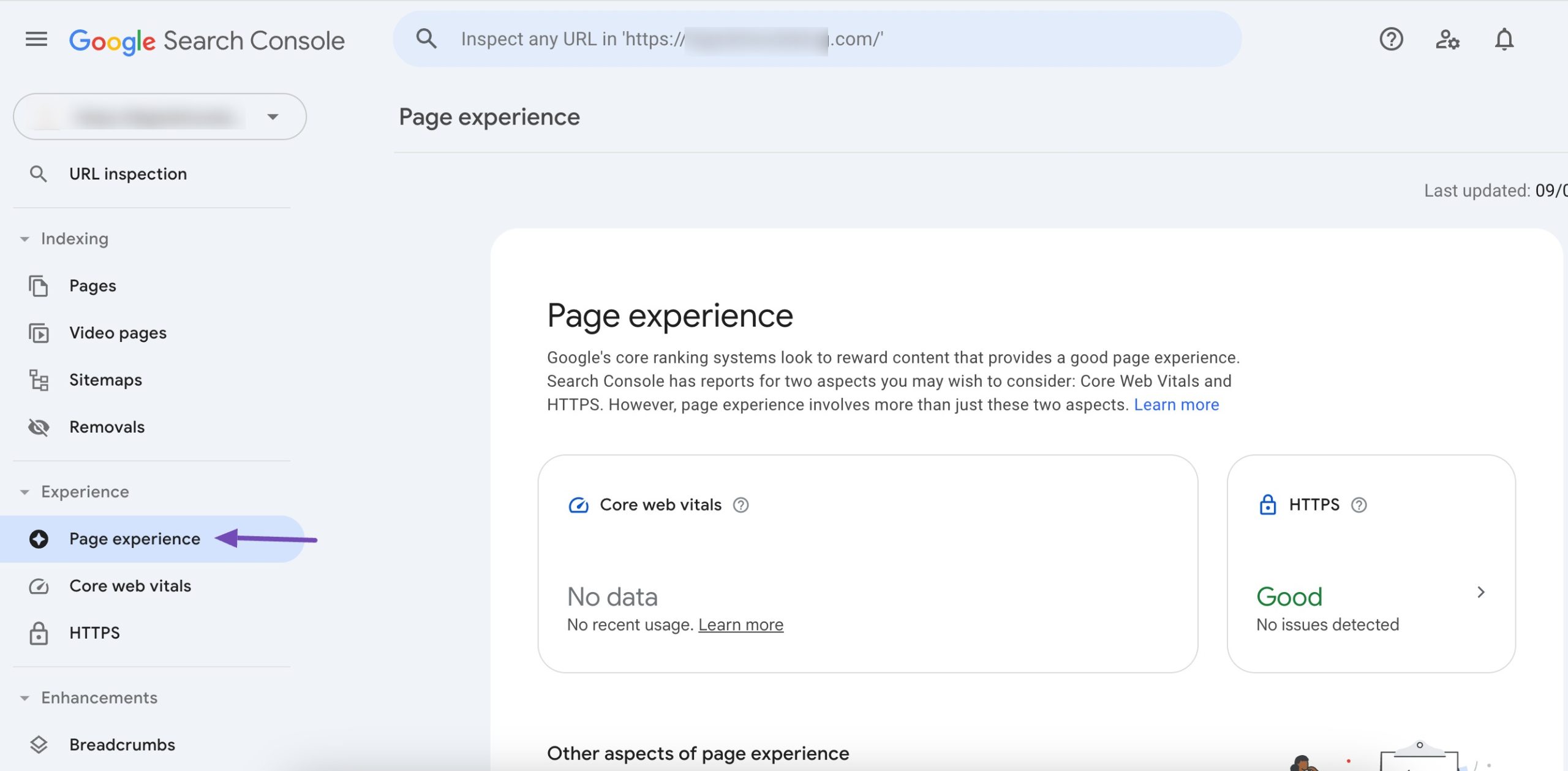
Additionally, the tool helps manage sitemaps and robots.txt files, offering a way to control how search engines index the site.
Moreover, Google Search Console provides invaluable backlink data, showing which sites link to the user’s website and the anchor text used. This information is essential for understanding and enhancing the site’s link profile, which is a significant factor in SEO rankings.
2.2 Google Analytics
Google Analytics is a powerful free tool for conducting SEO audits. It offers a deep dive into a website’s performance and behavior.

Google Analytics tracks many metrics, such as traffic sources, user demographics, and behavior flow, which helps understand how visitors arrive at the site, what they do once there, and which pages are most engaging. This data is important for identifying strengths and weaknesses in a website’s SEO performance.
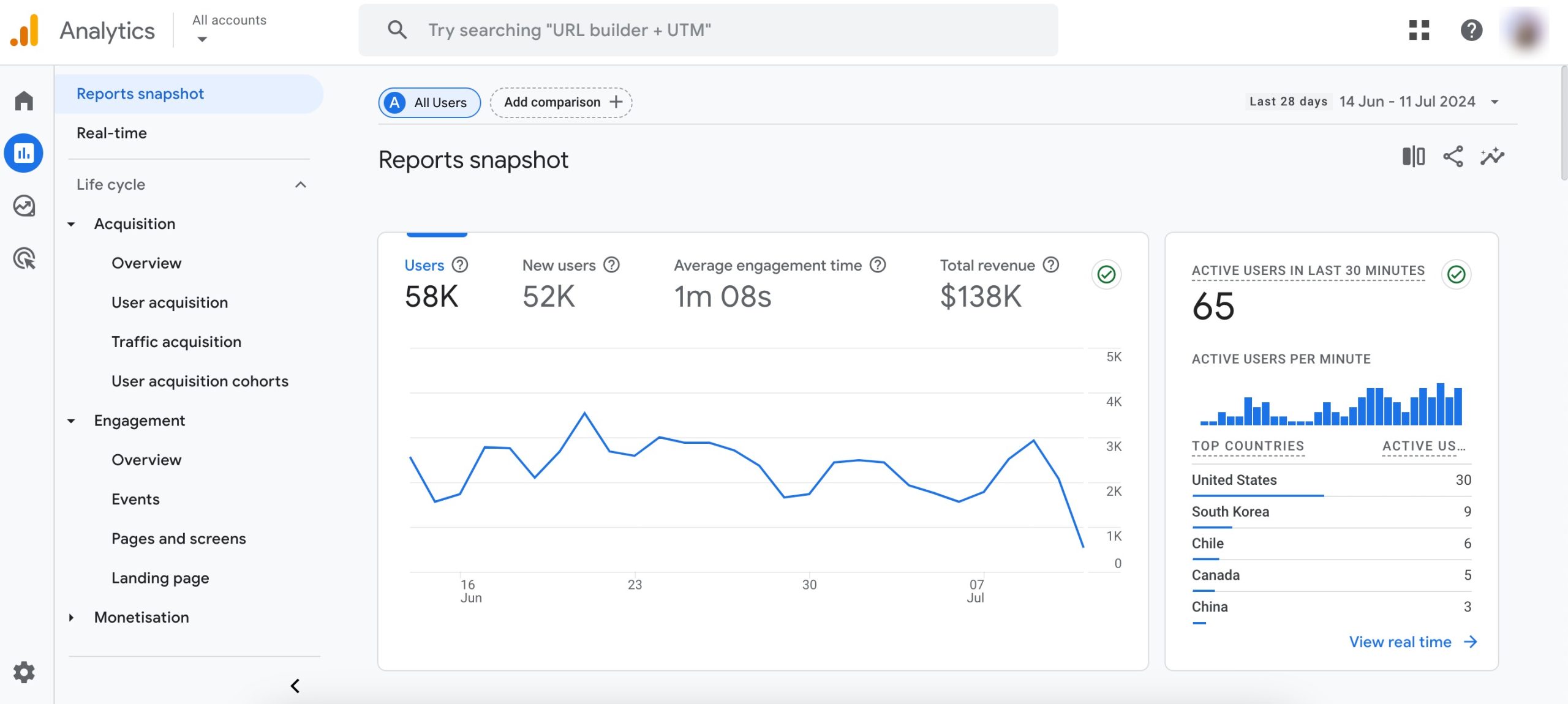
One of Google Analytics’ primary advantages is its ability to segment traffic based on various dimensions, such as organic search, social media, referrals, and direct visits.
This segmentation allows you to analyze the effectiveness of different marketing channels and focus their efforts on the most productive sources of traffic.
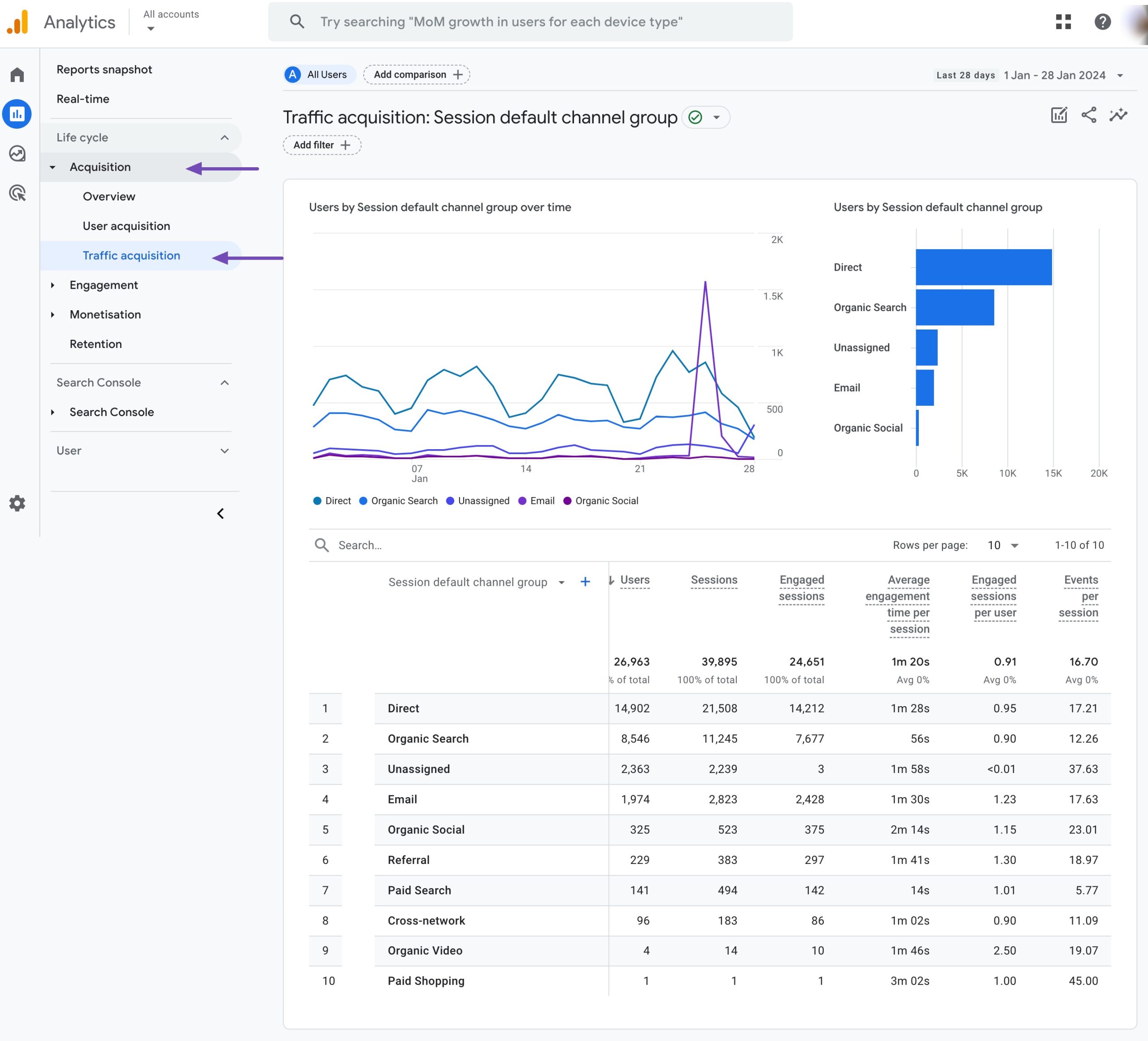
Google Analytics also integrates with Google Search Console, offering a more comprehensive view of search performance. Rank Math makes connecting your Google account directly to your WordPress dashboard extremely easy.
By linking the two tools, you can understand how search queries translate into actual site visits and user engagement. This integration helps refine keyword strategies and improve content relevance.
Furthermore, Google Analytics’ ability to track goal conversions and e-commerce transactions provides a clear picture of how SEO efforts contribute to business objectives, making it easier to measure ROI and adjust strategies accordingly.
2.3 Google PageSpeed Insights
Google PageSpeed Insights is a valuable free SEO audit tool for assessing and optimizing a website’s performance, particularly its loading speed.
PageSpeed Insights analyzes various factors affecting loading speed and user experience, delivering a comprehensive report with performance scores and actionable recommendations.
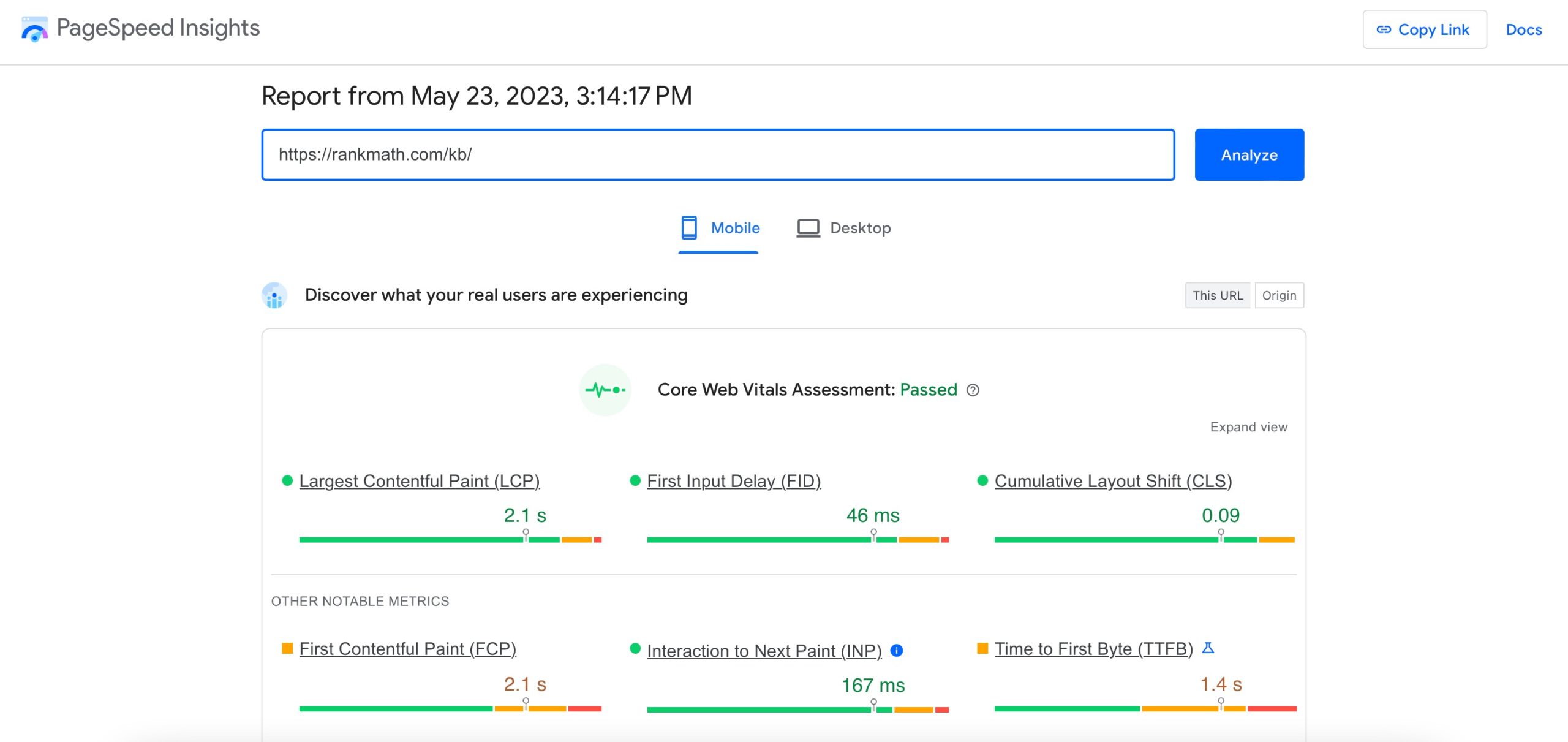
One of Google PageSpeed Insights’ key features is its ability to break down a webpage’s performance into specific metrics, such as Largest Contentful Paint (LCP), Interaction to Next Paint (INP), and Cumulative Layout Shift (CLS).
These metrics are essential for understanding how quickly a page loads and becomes interactive for users.
The tool also evaluates Core Web Vitals, essential for measuring user experience aspects like loading speed, interactivity, and visual stability.
By focusing on these metrics, PageSpeed Insights helps identify areas that need improvement to enhance overall page performance.
2.4 Rank Math’s SEO Analyzer
Rank Math SEO’s SEO Analyzer is designed to simplify and enhance the process of conducting SEO audits.

Navigate to Rank Math SEO → SEO Analyzer, as shown below.
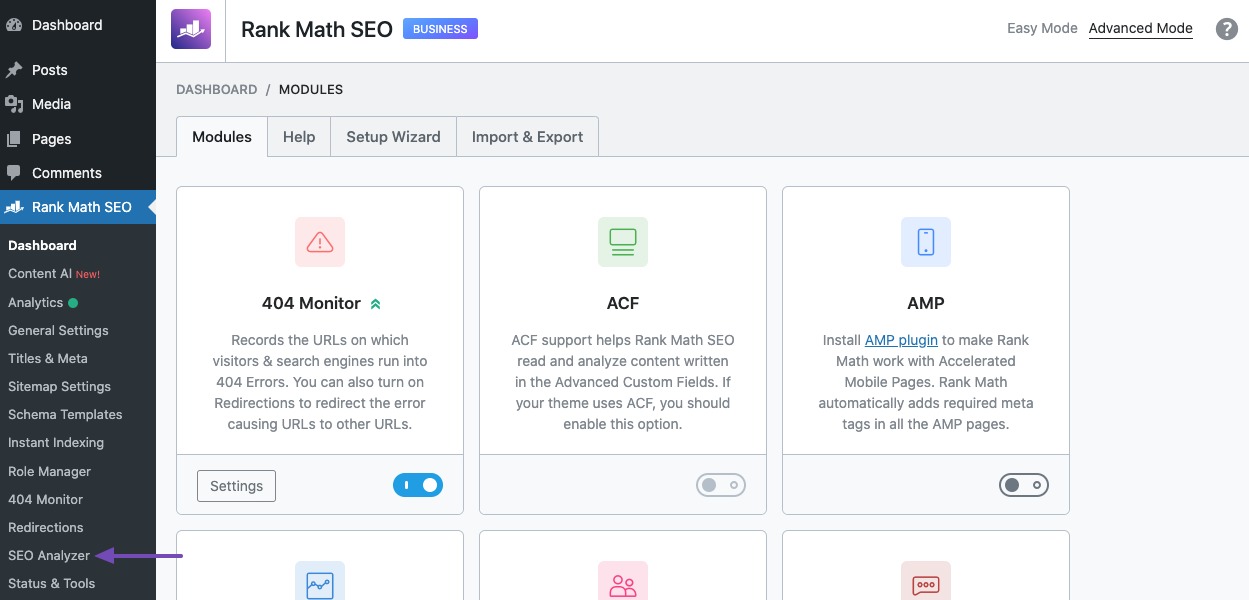
The Dashboard comprises two tabs, namely, SEO Analyzer and Competitor Analyzer.
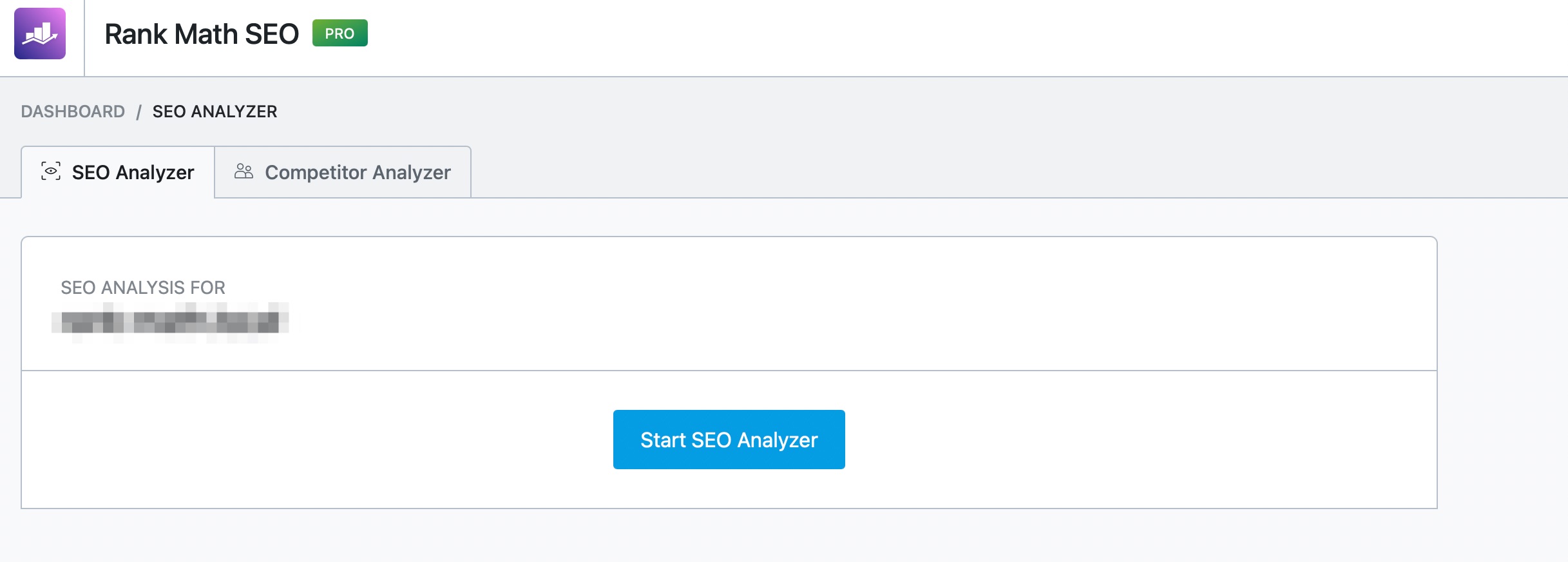
The SEO Analyzer thoroughly scans the site, examining various aspects such as keyword usage, meta tags, content quality, and technical SEO factors.
This feature helps the audience optimize their sites for better search engine rankings by providing detailed reports and actionable recommendations.
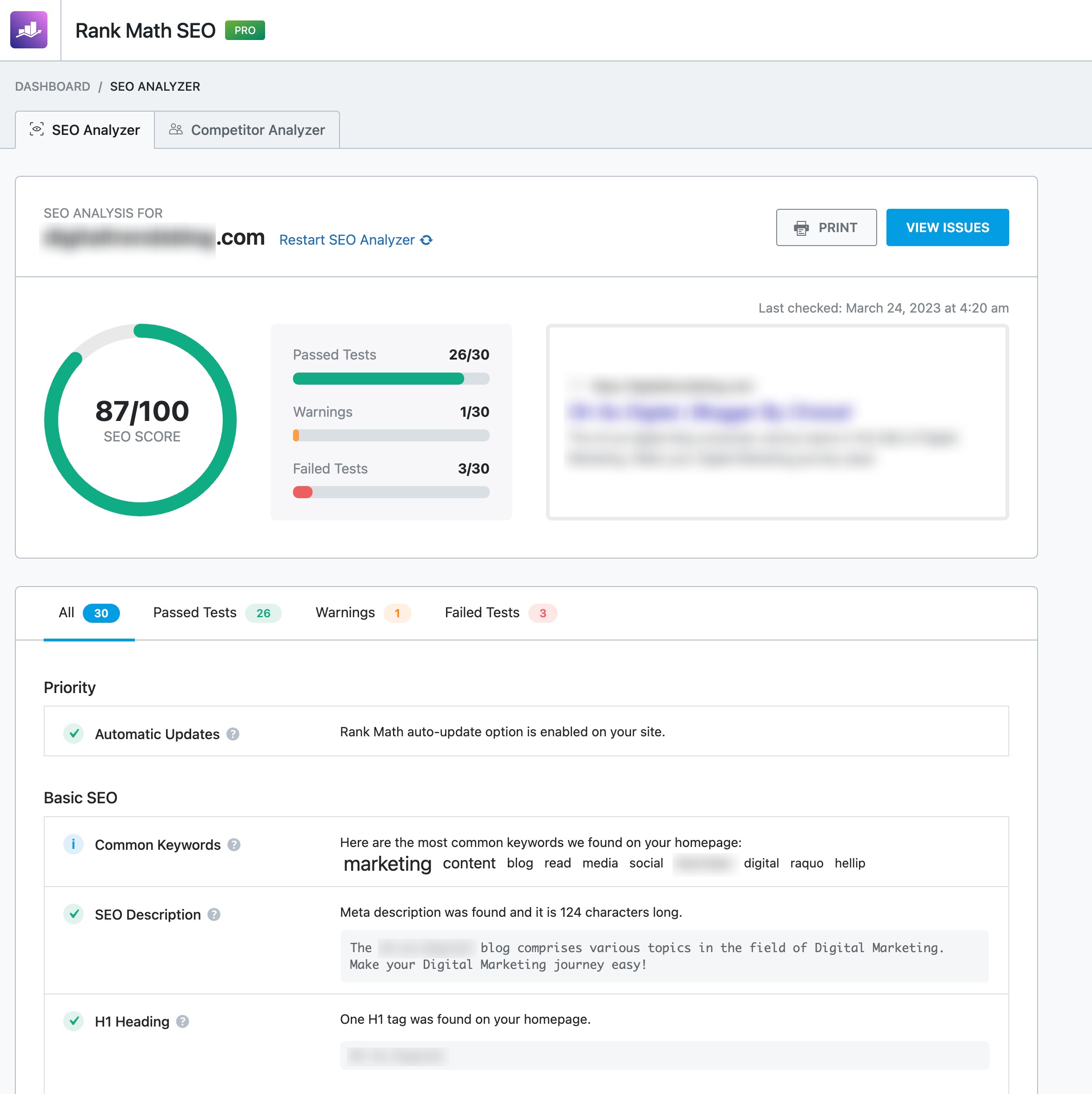
Rank Math PRO offers a Competitor Analyzer feature right in the dashboard. You can examine your competitor’s website by entering its URL, as shown below. Click the Start Audit button to get its score and checklist results.
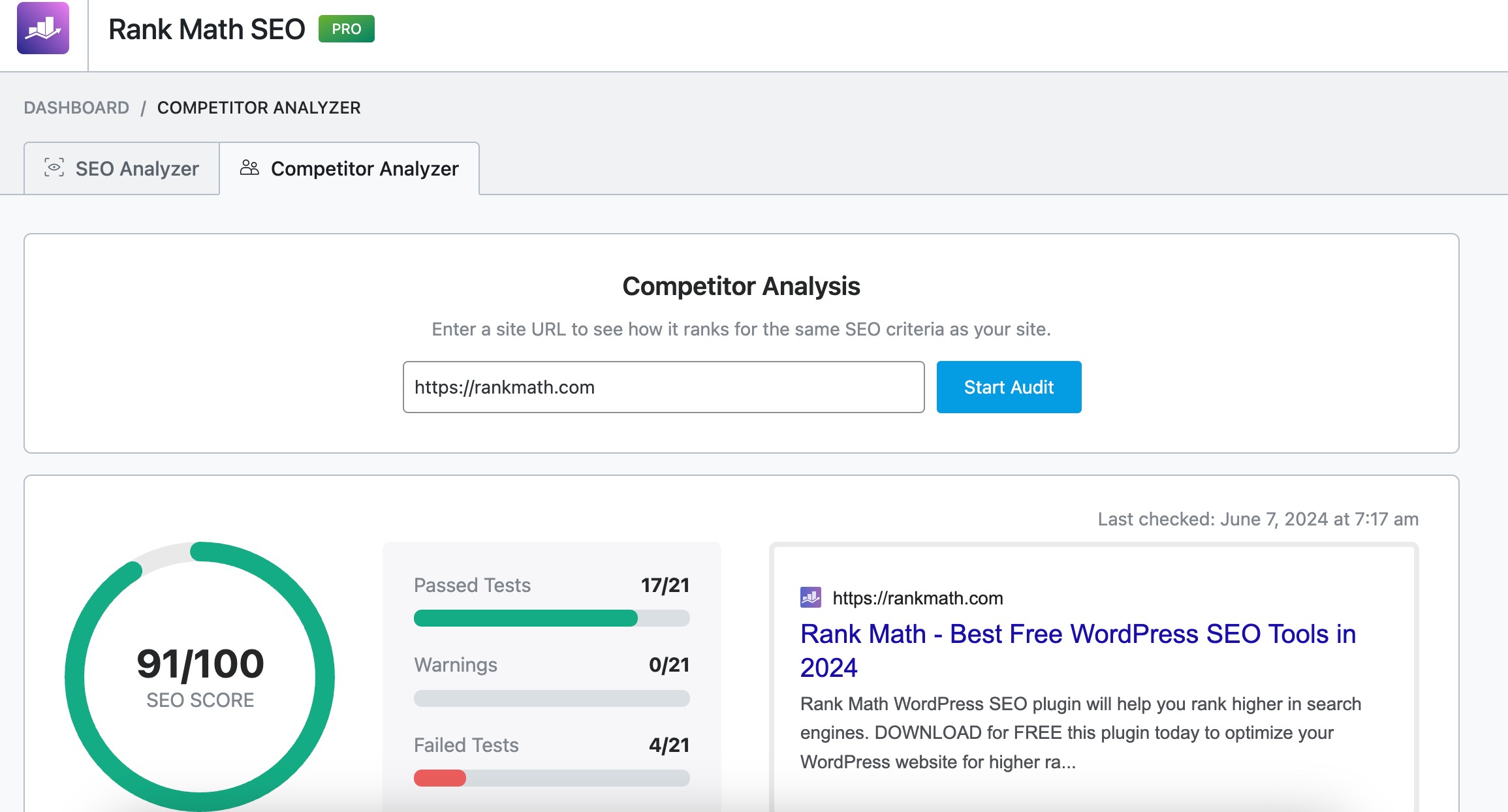
2.5 Semrush
Semrush’s Site Audit feature performs an in-depth website analysis, identifying important technical issues that can affect its search engine rankings.
It checks for common problems such as crawlability issues, HTTPS implementation, page load speeds, international SEO, and more, providing detailed reports highlighting these issues and actionable solutions.
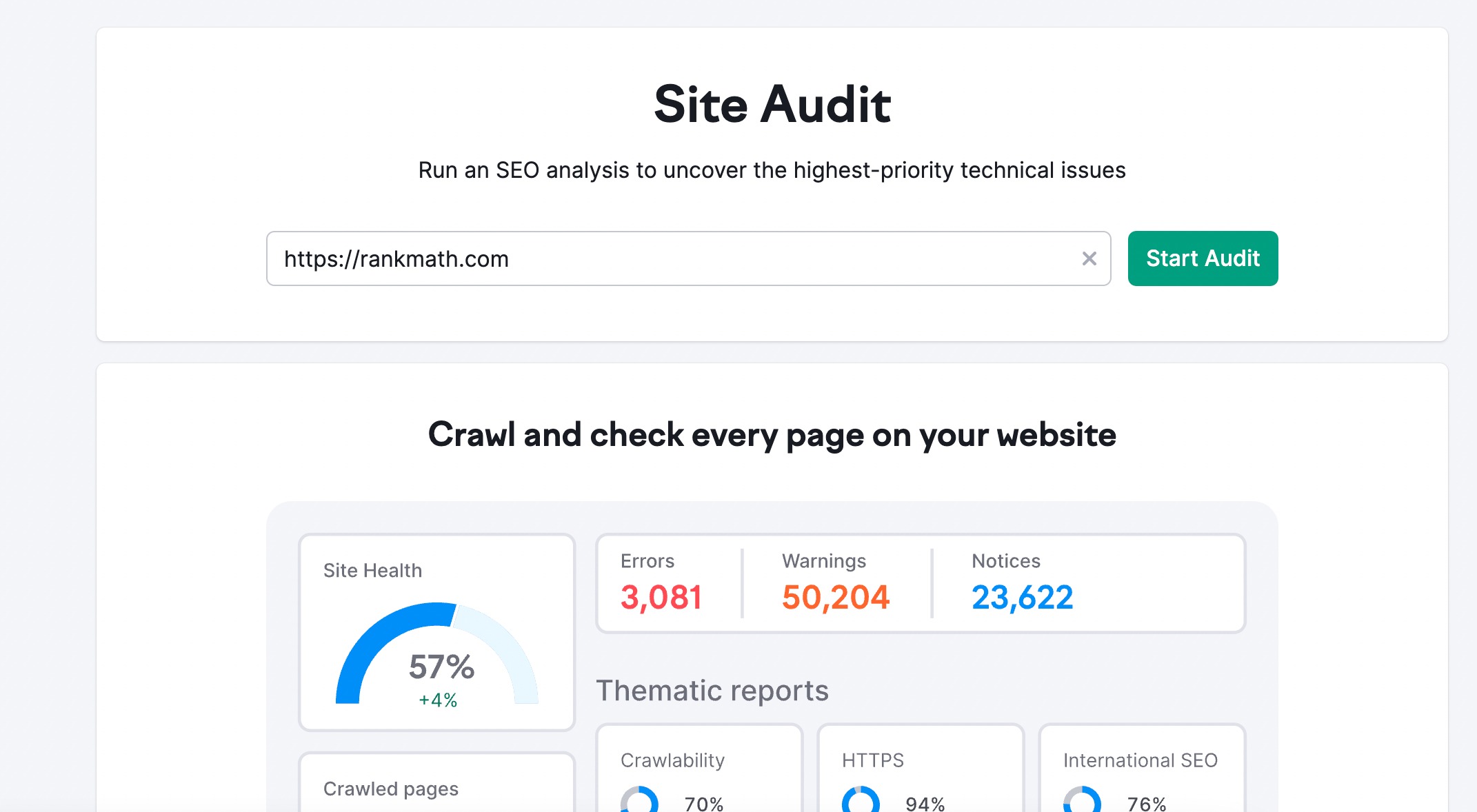
The Semrush On-Page SEO Checker tool can conduct on-page SEO audits. It analyzes key elements like title tags, meta descriptions, header tags, and content quality to ensure that each page aligns with SEO best practices.
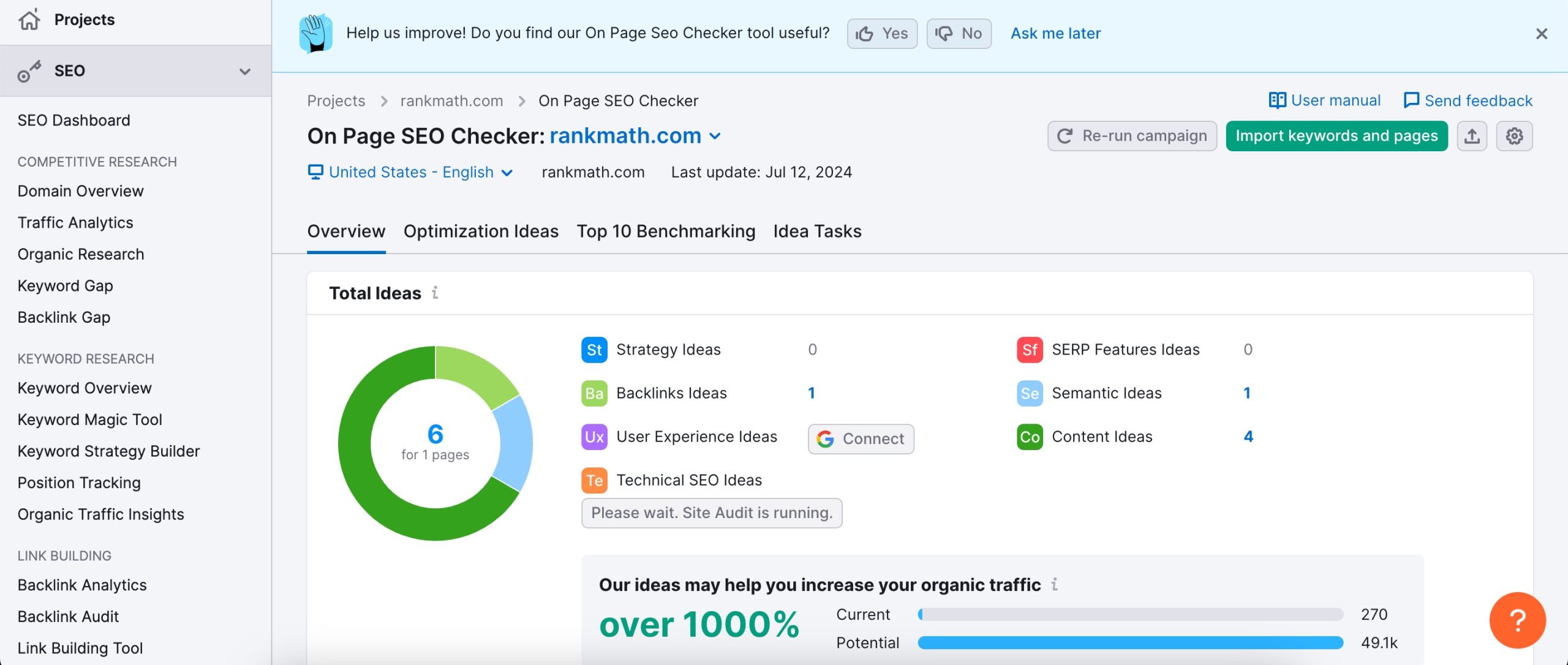
2.6 Ahrefs Site Audit
Ahrefs is a powerful and widely used SEO audit tool for its comprehensive capabilities in analyzing and enhancing a website’s search engine performance.
At its core, Ahrefs’ Site Audit feature performs an exhaustive crawl of a website, uncovering essential technical SEO issues affecting search visibility. This includes identifying crawl errors, broken links, duplicate content, and slow-loading pages.
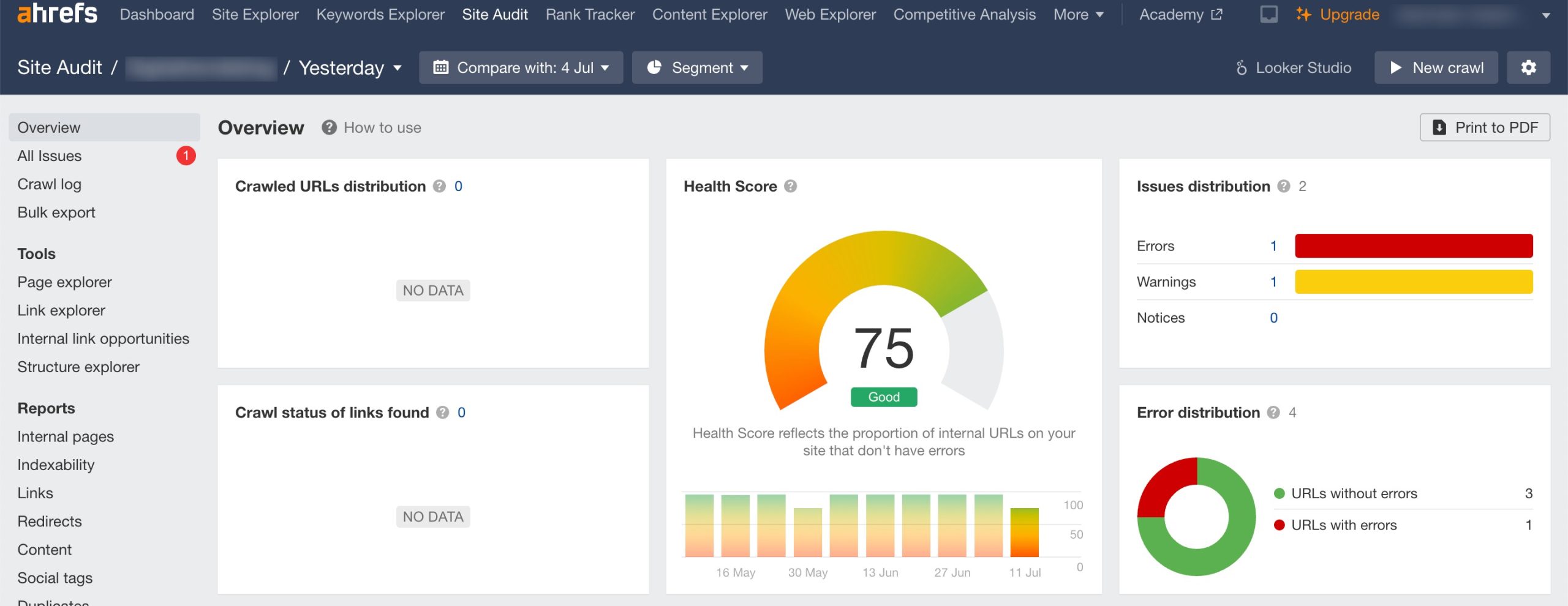
The tool provides a detailed report of these issues, complete with suggestions for fixes, making it easier to prioritize and address the most pressing problems.
2.7 Screaming Frog SEO Spider
Screaming Frog SEO Spider is a powerful SEO audit tool that provides detailed technical insights, URL structure analysis, XML sitemap generation, and integration with key analytics platforms.
Screaming Frog SEO Spider operates as a website crawler, capable of scanning websites of varying sizes and complexities to identify SEO issues.
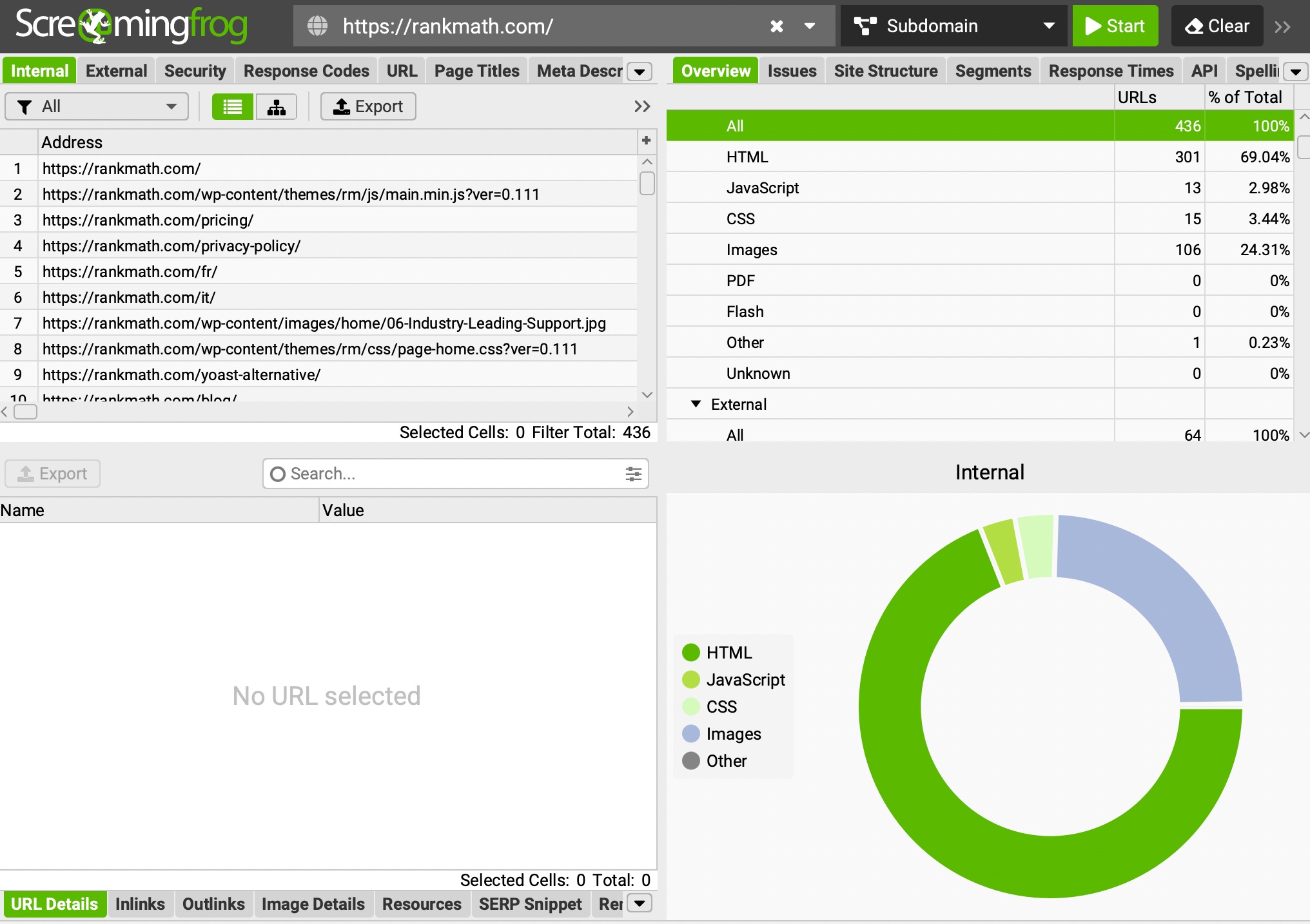
It can detect broken links, analyze page titles and meta descriptions, uncover duplicate content, and review response codes.
By providing detailed reports on these elements, the tool helps to pinpoint and rectify issues that can negatively impact user experience and search engine visibility.
For instance, it can identify missing or too-long meta tags, allowing you to optimize these essential on-page elements.
3 Conclusion
SEO audit tools are indispensable for maintaining and enhancing a website’s search engine performance. These tools provide comprehensive insights into various aspects of SEO, from technical issues and on-page elements to content optimization and backlink analysis.
Each tool offers unique features and capabilities.
Whether it’s detecting technical glitches, optimizing content for keywords, analyzing backlink profiles, or benchmarking against competitors, these tools provide actionable data that drives informed decision-making and strategic planning.
Regular SEO audits using these tools are essential to ensure that websites are optimized to meet the latest search engine algorithms and user expectations.
Ultimately, the effective use of SEO audit tools leads to better user experiences, higher search engine rankings, and increased organic traffic.
If you like this post, let us know by Tweeting @rankmathseo.
